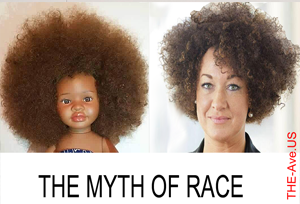Remember Dolazel?

In an era where we accept the idea that Caitlin Jenner was always a female, what happens when an apparently white child identifies as … black?
detroit.cbslocal.com
According to a University of Michigan study, white preschoolers often believe a person’s race can change over time, and the youngsters even think they can can grow up to become black adults.
Steven Roberts, a U-M doctoral student and the study’s lead author, said that although children may be aware of races other than their own, they don’t have a strong understanding of what race is — at least not to the degree of adults.
Roberts and colleague Susan Gelman, U-M professor of psychology and linguistics, examined the extent that children believed race was stable; that is, whether a black child would grow up to be a black adult.
The experiment included 74 children and 28 adults. Children were recruited in the Midwest at museums, and adults were recruited online.The data were collected between 2014 and 2015.
Researchers showed participants pictures of children who were happy or angry and black or white, and asked them to indicate which of two adults each child would grow up to be. One adult matched the child in emotion (but not race) and the other matched the child in race (but not emotion).
Participants could have chosen a same-emotion but different race match, or a same-race but different emotion match.
White adults, white 9- to 10-year-olds and racial minority 5- to 6-year-olds selected the same-race matches, which meant they believed, for instance, that a white child would grow up to be a white adult.
But white 5- to 6-year-olds showed a different pattern. They selected the same-emotion and same-race matches at equal rates, which meant they were not committed to the belief that race was stable.
“These data suggest that beliefs about racial stability vary by age and race, and that at an early age, children do not have strong beliefs about race. They don’t even believe that race is stable,” Roberts said in a statement. “Because of this, white 5- to 6-year-olds may be less likely to use race as a way to discriminate against other children when selecting who to play with, for example.”
One possible reason underlying these differences could be experience. Roberts says black children might learn about racial differences at younger ages because of their exposure to more racial diversity, whereas their white peers might not get those experiences until they attend grade school.This research was funded by a Ford Foundation Predoctoral Fellowship, a National Science Foundation Predoctoral Fellowship, and a grant from the National Institute of Child Health and Human Development. The findings appear in Developmental Psychology.